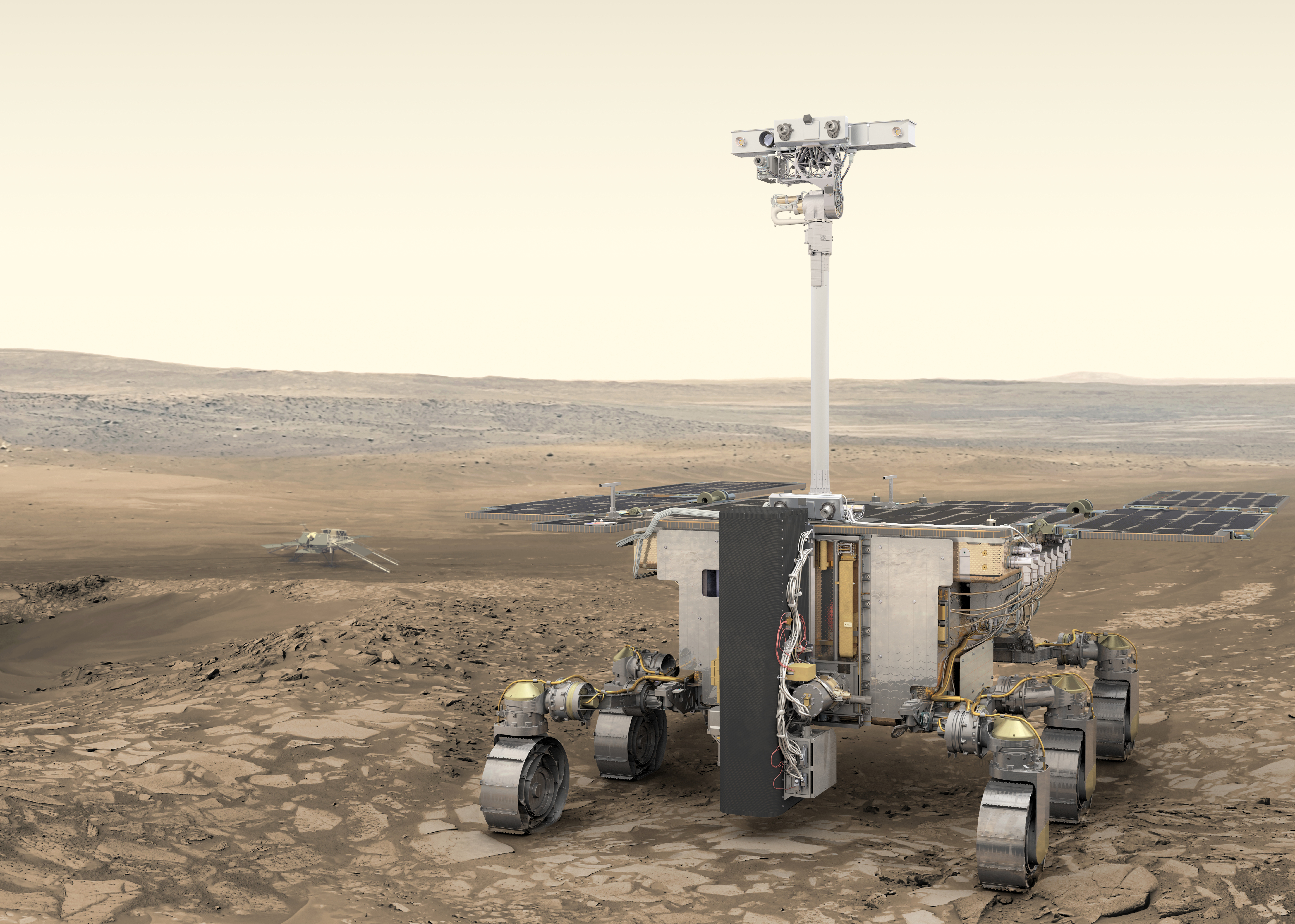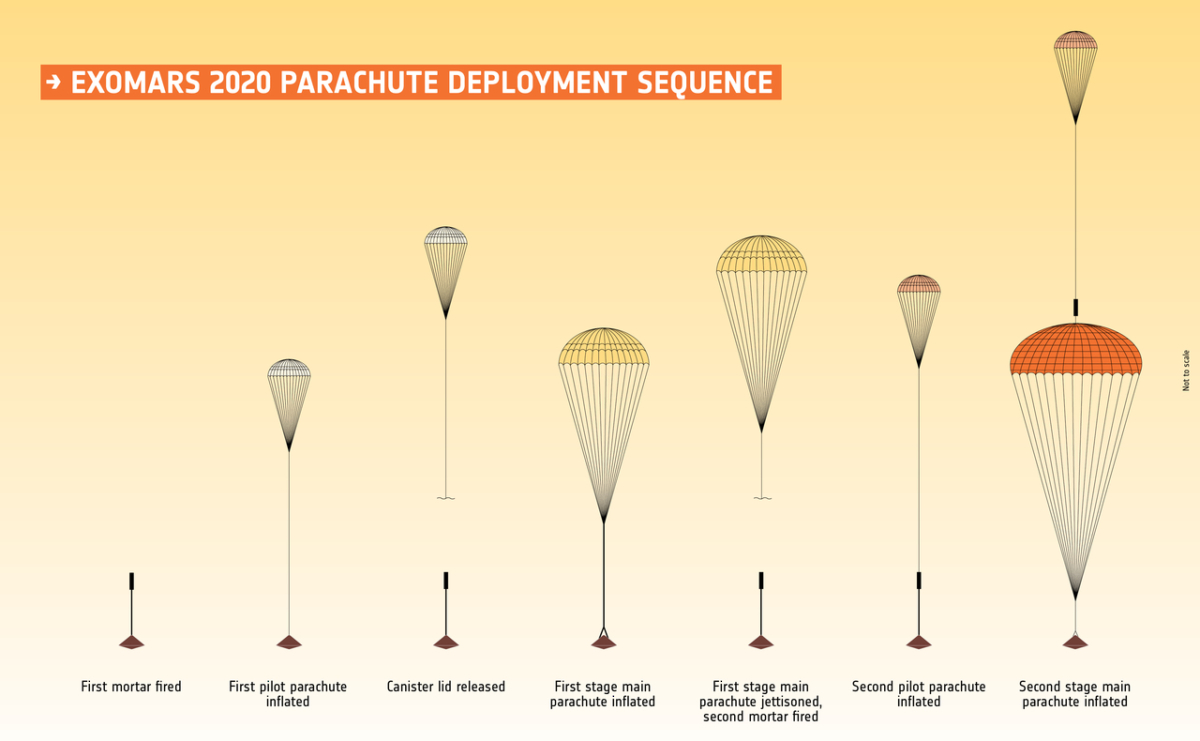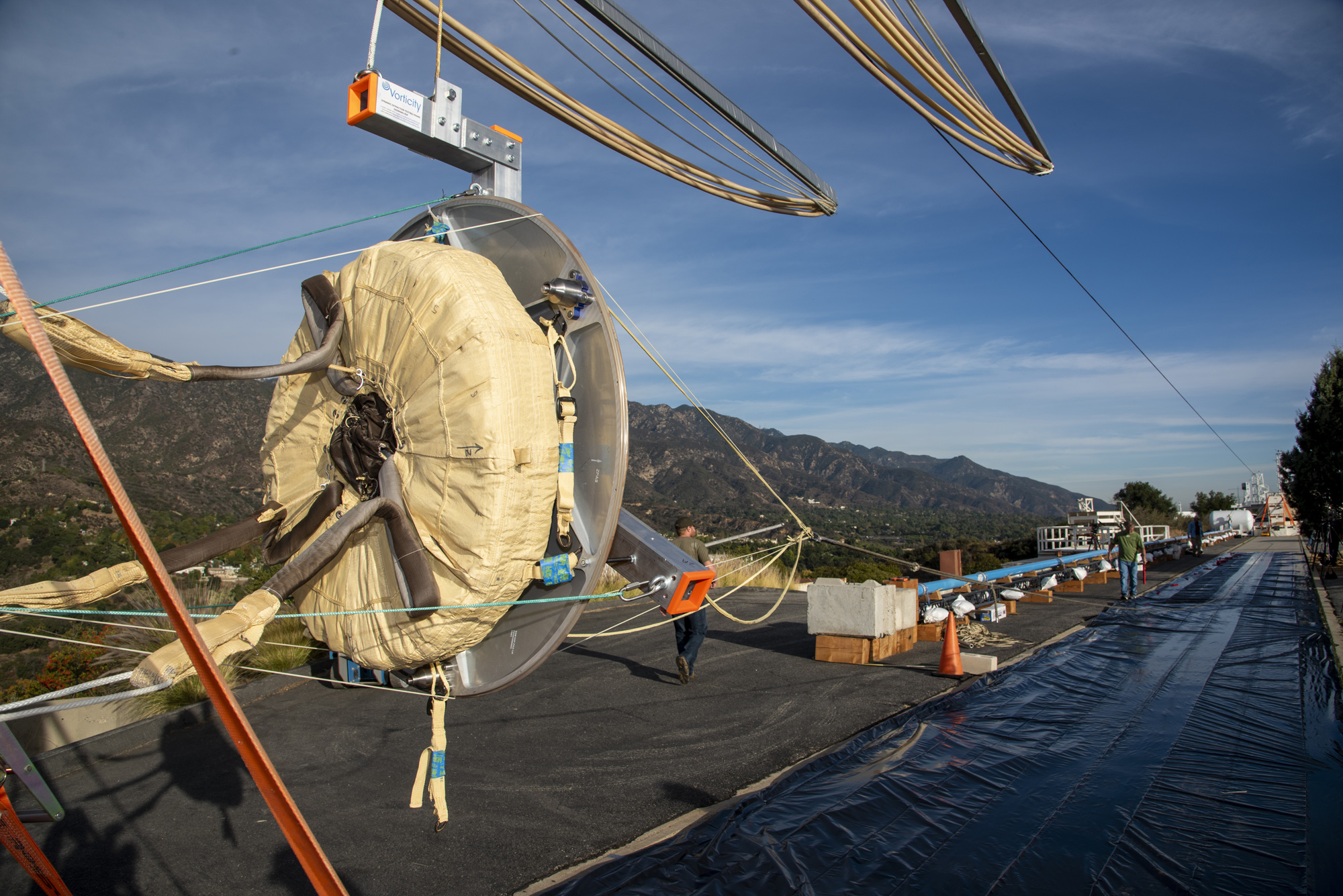Europe's ExoMars rover launch delayed to 2022 due to parachute problems
ESA and Russia had hoped to launch it July 2020.
The heads of the European Space Agency (ESA) and the Russian space agency, Roscosmos, have decided to postpone this year's launch of the ExoMars rover until 2022 due to technical issues.
"This is a very tough decision, but it's, I'm sure, the right one," ESA Director General Jan Wörner said in a news conference at ESA's headquarters in Paris today (March 12) after speaking with Roscosmos Director General Dmitry Rogozin.
"We agreed together it's better to go for success than just to go for launch at this time," Wörner said. "Although we are close to launch readiness we cannot cut corners. Launching this year would mean sacrificing essential remaining tests."
"We have made a difficult but well-weighed decision to postpone the launch to 2022. It is driven primarily by the need to maximise the robustness of all ExoMars systems as well as force majeure circumstances related to exacerbation of the epidemiological situation in Europe which left our experts practically no possibility to proceed with travels to partner industries," Rogozin said in a statement. "I am confident that the steps that we and our European colleagues are taking to ensure mission success will be justified and will unquestionably bring solely positive results for the mission implementation."
Related: Europe's ExoMars missions to Mars in pictures
Named Rosalind Franklin, the ExoMars rover was scheduled to launch to the Red Planet in July. But Wörner said the mission leaders would not have enough time before then to troubleshoot issues related to the parachutes and mission-critical electronic equipment.
"Appreciate @esa and @roscosmos for making the tough decision to postpone @ESA_ExoMars to 2022," NASA's Thomas Zurbuchen, head of the Science Mission Directorate, said in a statement posted to Twitter. "Launching & safely landing a spacecraft on Mars are extremely demanding and require many technologies & systems to function perfectly. Your work is inspiring everyone to do hard things."
Breaking space news, the latest updates on rocket launches, skywatching events and more!
The Russian Proton rocket and the European carrier spacecraft are "complete and ready to go," and the rover has demonstrated good performance in its environmental test campaign, Wörner said. However, the agency is still waiting for upcoming high-altitude tests of the huge parachutes that are essential to ensure a safe landing for the rover.
Passing these tests would be an especially important milestone for the mission, as previous drop tests of a 50-foot (15 meters) supersonic parachute and a 114-foot (35 m) subsonic parachute both failed in May and August 2019.

Wörner also said that there were bugs found in the descent module's electronic equipment, which is needed to fulfill critical functions, such as depressurization at liftoff, power and thermal control, propulsion and parachute commanding. The equipment had to be returned to suppliers, Wörner said, and it will take some time for these fixes to be reintegrated into the spacecraft.
"Due to the troubleshooting of these anomalies at system level, the final version of the flight software has been delayed and there is not enough time to fully test it before a 2020 launch and gain the confidence we need," Wörner said.
The rover represents the second phase of the joint ESA-Roscosmos ExoMars mission. The program began in 2016 with the launch of the Trace Gas Orbiter, which is still circling Mars and is in good health, and the Schiaparelli lander, which crashed during its touchdown attempt.
Even if the problems associated with the new lander are worked out in the next few months, the launch would still have to be delayed by more than two years because of the position of Mars relative to Earth. Missions are typically only scheduled when the planets are close enough to use the least amount of fuel for the journey, which lasts about six months. Such alignments last only a few weeks and occur every 26 months. The 2022 launch window is between August and October. Once the rover passes its final tests and is ready, it will be stored in a superclean environment, with periodic awakenings and equipment checking.
Wörner was supposed to meet with Rogozin in Moscow to decide the fate of ExoMars 2020, but the trip was canceled due to precautions regarding the spread of COVID-19, forcing the two leaders to teleconference instead. Wörner said it's possible that the coronavirus outbreak could have interfered with the launch, regardless of the technical issues, because of the new restrictions on travel.
The Rosalind Franklin rover's landing site will not change with the new launch date. In a dried-up Martian lakebed that's more than 3 billion years old, the rover will search for signs of life, past and present, and collect data that could help resolve Red Planet mysteries, such as what's happening to methane in Mars' atmosphere.
"We have waited for centuries to find out if Mars is something like the early place of life in our solar system," Wörner said. "To find an answer to our question, we will have [to have] some more patience for a couple of years."
- 4 Mars missions are launching to the Red Planet in July
- How Europe's ExoMars missions to Mars work (infographic)
- Parachutes, sky cranes and more: 5 ways to land on Mars
Follow Megan Gannon @meganigannon. Follow us on Twitter @Spacedotcom and on Facebook.
OFFER: Save at least 56% with our latest magazine deal!
All About Space magazine takes you on an awe-inspiring journey through our solar system and beyond, from the amazing technology and spacecraft that enables humanity to venture into orbit, to the complexities of space science.

Megan has been writing for Live Science and Space.com since 2012. Her interests range from archaeology to space exploration, and she has a bachelor's degree in English and art history from New York University. Megan spent two years as a reporter on the national desk at NewsCore. She has watched dinosaur auctions, witnessed rocket launches, licked ancient pottery sherds in Cyprus and flown in zero gravity on a Zero Gravity Corp. to follow students sparking weightless fires for science. Follow her on Twitter for her latest project.



